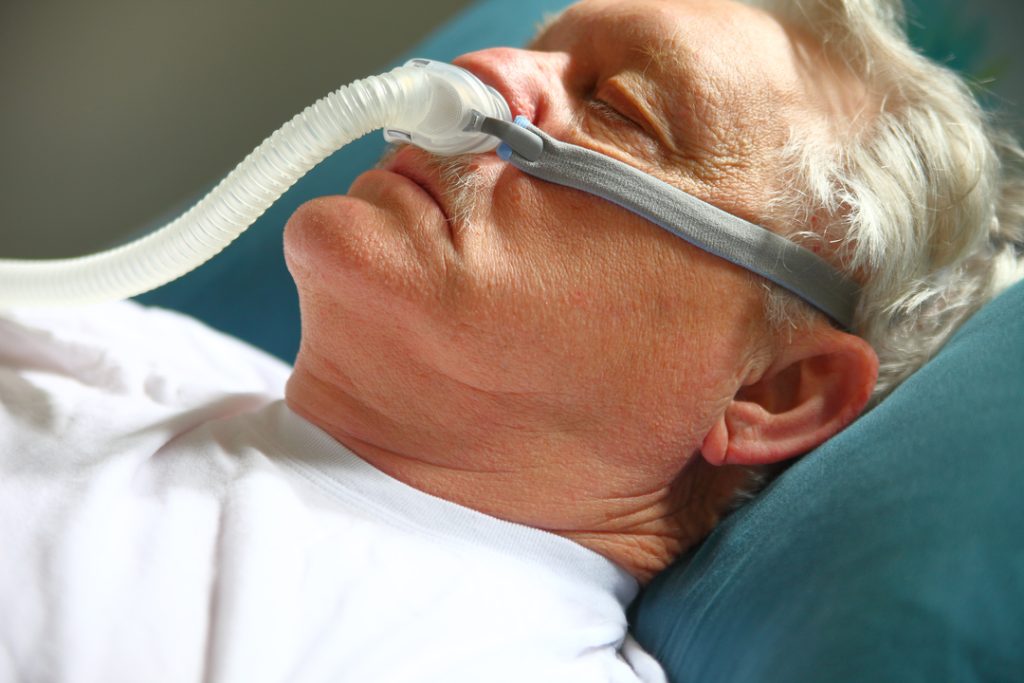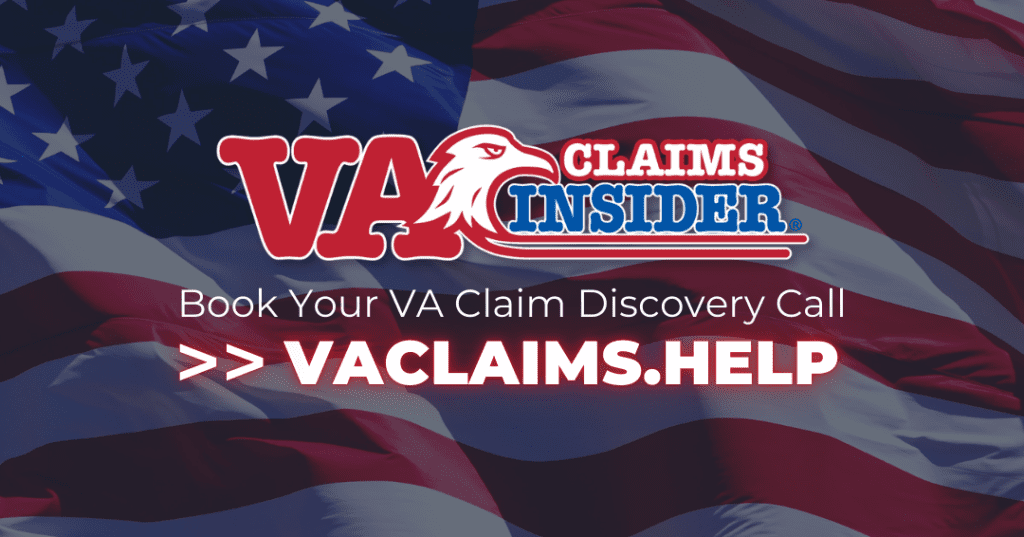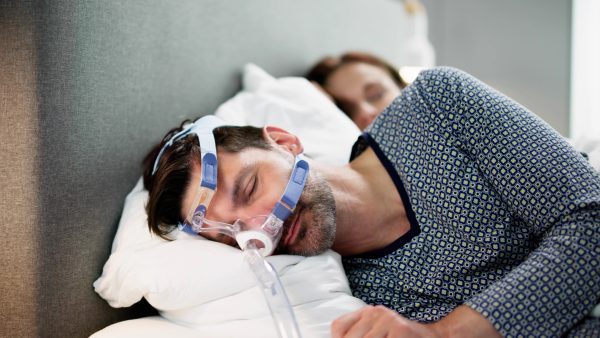Looking for Expert-Level VA Claim Answers?📱Call Us Now! 737-295-2226
Are you struggling with where to start with your sleep apnea VA claim? You’re in the right place.
If your military service caused your sleep apnea or aggravated a pre-existing condition, you may be eligible for VA disability benefits.
Sleep apnea may significantly impact your daily life, so it’s vital you get the knowledge you need.
This post provides expert tips and information about the following:
- How the VA evaluates sleep apnea
- Types of sleep apnea
- The correct way to file a sleep apnea VA disability claim
- What to do with a denied sleep apnea claim, and lots more!
Don’t leave any sleep apnea compensation on the table. You served, and you deserve!
Table of Contents

Summary of Key Points
- Sleep apnea is a sleeping disorder that disrupts a person’s breathing and may cause shallow breathing, loud snoring, awakening with dry mouth, or morning headaches.
- Using VA Form 21-526EZ, you can file sleep apnea claims online, in person, by mail, or via fax.
- The VA rates sleep apnea at 0%, 30%, 50%, and 100%, depending on the severity and frequency of your condition and whether you require a breathing assistance device, like a CPAP machine.
Sleep Apnea in Veterans
The Mayo Clinic defines sleep apnea as a “potentially serious sleep disorder in which breathing repeatedly stops and starts.”
Additional symptoms of sleep apnea include:
- Loud snoring
- Shallow breathing
- Episodes in which you stop breathing during sleep (usually detected by a spouse or significant other)
- Gasping for air during sleep
- Awakening with a dry mouth
- Morning headache
- Difficulty staying asleep
- Excessive daytime sleepiness
- Difficulty concentrating
- Irritability
Contributing factors to sleep apnea in veterans may include obesity, post-traumatic stress disorder, and traumatic brain injuries.
You are at higher risk for developing sleep apnea if you have a family history, use tobacco or alcohol, or have certain medical conditions like type 2 diabetes and hypertension.
Note: Most veterans aren’t diagnosed with sleep apnea during their active military service, so you must schedule an appointment with your healthcare provider if you suspect you may have sleep apnea.
Types of Sleep Apnea
Your sleep apnea VA claim will depend on which of the following types of sleep apnea you have:
- Obstructive Sleep Apnea (OSA): This is the most common form of sleep apnea. It occurs when the throat muscles relax excessively during sleep, leading to a partial or complete airway blockage. OSA is often associated with loud snoring, choking, or gasping for air, and daytime sleepiness.
- Central Sleep Apnea (CSA): CSA is less common than OSA and happens when the brain fails to send the appropriate signals to the muscles responsible for breathing. This causes the individual to stop breathing during sleep temporarily; however, there’s no physical obstruction of the airway.
- Complex or Mixed Sleep Apnea: This type of sleep apnea, sometimes referred to as treatment-emergent central sleep apnea, is a combination of both obstructive sleep apnea (OSA) and central sleep apnea (CSA).
How the VA Rates Sleep Apnea
The VA rates sleep apnea under diagnostic code (DC) 6847 Sleep Apnea Syndromes (Obstructive, Central, Mixed) with VA disability ratings ranging from 0% to 100%.
Your VA disability rating for sleep apnea will depend on the severity and frequency of your symptoms and the treatment required to manage the condition (i.e., a CPAP machine).
You must attend a sleep study to determine the severity and frequency of your condition.
Sleep Apnea VA Rating Chart
| DC 6847 Sleep Apnea Syndromes (Obstructive, Central, Mixed) | VA Disability Rating |
| Chronic respiratory failure with carbon dioxide retention or cor pulmonale, or; requires tracheostomy | 100% |
| Requires use of breathing assistance device such as a continuous airway pressure (CPAP) machine | 50% |
| Persistent daytime hypersomnolence | 30% |
| Asymptomatic but with documented sleep disorder breathing | 0% |
Expert Tips for Service Connecting Sleep Apnea
To receive a VA disability rating for sleep apnea, you must service connect your condition, meaning you’re proving your military service caused your disability.
There are two main types of service connections: direct and secondary.
Tips for Proving Direct Service Connection
For a direct service connection, you need to show that your sleep apnea resulted from or was aggravated by your military service.
A direct service connection requires the following:
- A current medical diagnosis of sleep apnea
- An in-service illness, injury, or event
- A link between your military service and medical condition
See More: What is Direct Service Connection for VA Disability?
Tips for Proving Secondary Service Connection
A secondary service connection occurs when a primary service-connected condition causes or aggravates a secondary disability. A secondary condition could lead to a higher VA disability rating.
To qualify for sleep apnea as a secondary condition, you must provide the following information:
- A current medical diagnosis of sleep apnea, AND
- Medical evidence linking your current diagnosis of sleep apnea and your secondary condition.
See More: What is a Secondary Service Connection for VA Disability?
Common Secondary Conditions to Sleep Apnea
Sleep apnea puts you at risk for several additional conditions, which the VA refers to as secondary conditions. For a secondary basis claim, you still must prove service connection.
Common secondary conditions to sleep apnea include but are not limited to:
- Cardiovascular disorders
- Type 2 diabetes
See More: Secondary Conditions to Sleep Apnea
Tips to Strengthen Your Sleep Apnea Claim with Medical Evidence
While medical evidence isn’t required to file a VA claim, it may help strengthen your case and lead to a favorable disability rating.
You can support your VA disability claim by providing these documents:
- VA medical records and hospital records. These could relate to your claimed illnesses or injuries, or they could show that your rated disability has gotten worse.
- Private medical records and hospital reports. These could relate to your claimed illnesses or injuries, or they could show that your disability has gotten worse.
- Supporting statements (i.e., personal statements and/or buddy letters). These could be from yourself (personal statement in support of claim), family members, friends, clergy members, law enforcement personnel, or people you served with. These statements could tell us more about your claimed condition and how and when it happened or how it got worse.
See More: Can I File a VA Claim Without Evidence?
Sleep Apnea Nexus Letter Tips
A sleep apnea nexus letter can provide credible medical evidence showing that your sleep apnea is connected to your military service.
Nexus letters provide the medical opinion of a healthcare professional and provide evidence to support that your sleep apnea is “at least as likely as not” connected to your military service or another service-connected disability.
While nexus letters aren’t required and don’t guarantee service connection, they are frequently the missing link in a VA disability claim.
See More: Do I Need a Nexus Letter?
-
Pro Tip: You will want to have a Sleep Apnea Nexus Letter if you are claiming sleep apnea as a secondary condition.
Need a Nexus Letter to Help Service Connect Your VA Claim for Secondary Sleep Apnea?
Trying to get a high-quality Nexus Letter to help service connect your secondary VA disability condition?
WE GOT YOUR SIX!
Veterans who become members of the VA Claims Insider Elite program get access to a network of independent medical providers who can write Nexus Letters at reduced rates.
Why pay $1,500 to $2,000 for a Nexus Letter when you can get one for 60-70% OFF through VACI’s preferred provider network?
Click HERE to book a date and time to speak with a VA claim expert (no-obligation, no high-pressure sales tactics) or call us right now at 737-295-2226.
VA Denied Sleep Apnea Claim?
If the VA denied your sleep apnea claim, you have options, especially if you feel you rightfully deserve VA disability benefits.
The three main appeal options are:
- File a Supplemental Claim if you have new and relevant evidence the VA didn’t have when they first reviewed your claim.
- Ask for a Higher-Level Review if you don’t have new evidence to submit and want a new review of your case by a higher-level reviewer.
- Appeal to the Board of Veterans’ Appeals if you want a Veterans Law Judge (an expert in Veterans law) to review your case.
See More: The VA Denied My Claim: Now What?
(FAQs) Sleep Apnea and VA Claims
Can you claim sleep apnea for VA disability?
Yes, the VA recognizes sleep apnea as a ratable VA disability directly linked to your military service.
Depending on the severity and frequency of their condition and the treatment required to manage the condition, veterans with service-connected sleep apnea may be eligible for VA disability compensation.
How do I file a sleep apnea VA claim?
You can file a VA disability claim for sleep apnea in one of the following ways: online, by mail, via fax, or in person at a local VA regional office
Pro Tip: If you choose a method other than online, you must download and complete VA Form 21-526EZ. You can check the status of sleep apnea claims online. See more about how to file a VA claim HERE.
What are the VA disability sleep apnea ratings?
The VA ratings for sleep apnea are 0%, 30%, 50%, and 100%. Veterans with service-connected sleep apnea may be eligible for VA disability compensation, depending on the severity and frequency of their condition and the treatment required to manage the condition.
Is there a VA rating for severe sleep apnea?
Yes, you may be eligible for disability benefits and a VA rating of 100% for severe sleep apnea. Severe sleep apnea requires using a breathing device, like a CPAP machine or similar breathing assistance devices.
Is sleep apnea a VA presumptive condition?
No, the VA doesn’t consider sleep apnea a presumptive condition despite it being linked to environmental hazards like Agent Orange and burn pits.
However, you may still be eligible for disability benefits if you can prove your military service caused or aggravated your sleep apnea.
Can I claim sleep apnea secondary to tinnitus?
Regardless of what others have said, it’s not advised to file a VA claim for sleep apnea secondary to tinnitus. It’s a stretch at best, and in our experience, you will likely end up with a denied claim. (See more in our blog on this topic HERE).

YOU SERVED. YOU DESERVE. We Got Your Six!
- VA Claims Insider is the #1 most trusted name in VA disability claims.
- Work directly with a VA claims coach who can educate and lead you to VA claim victory.
- 25,000+ disabled veterans served in our membership programs since 2016.
- 4.7/5.0 average rating out of 5,500+ total reviews; over 4,500 5-star reviews.

Kelly Olone
Kelly Olone is a military spouse who earned her degree in Psychology from Florida International University. After working in the non-profit sector for several years, she turned to her passion for writing. She aims to contribute to a better understanding of the valuable benefits that veterans deserve. As a mom, Kelly navigates the delicate balance between deadlines and bedtime stories with finesse.



